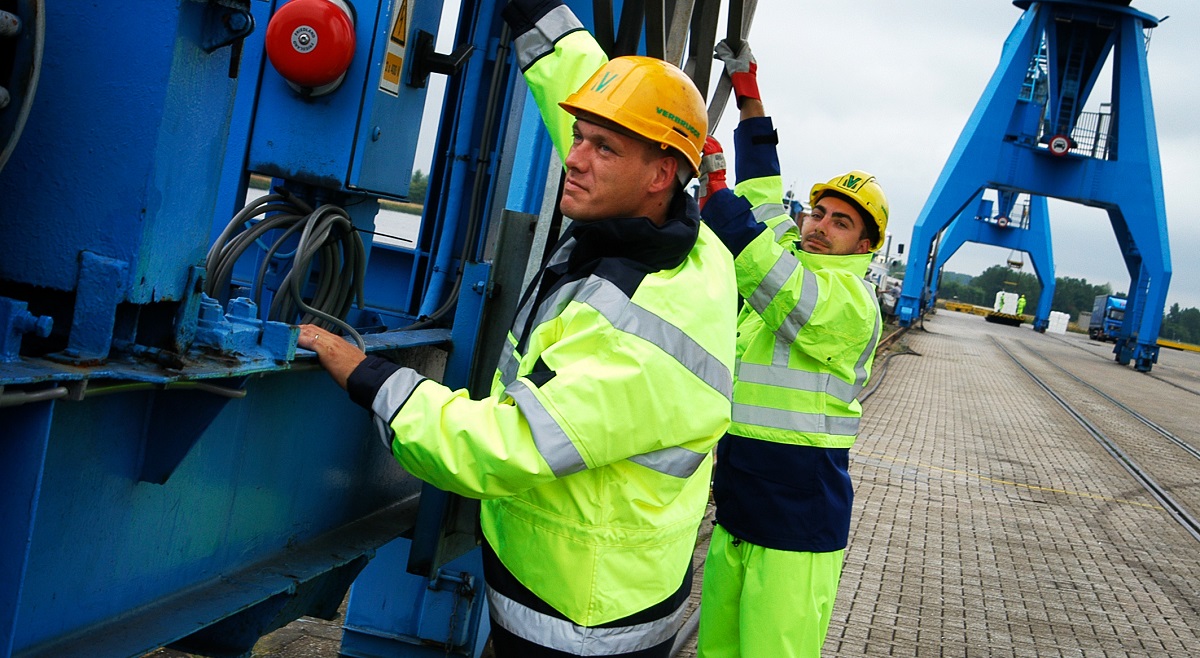EN 343: Protection from Rain
If you want waterproof clothing, being made of waterproof material is not enough. A seam design, through which water cannot pass, is just as important. And materials and seams are addressed in EN 343. Clothing that complies with the above standard can withstand not only rain but also snow (water resistance) and facilitates moisture wicking from the clothing meaning that you will not get as sweaty in it (breathability).
Water resistance is expressed in the form of a waterproof rating (mm) and its testing includes pre-treatment - 5 washing and drying cycles, abrasion, the effects of fuels and oil (60´) and repeated bending (9,000 cycles). Clothing belongs in one of 3 classes based on resistance.
Water resistance (resistance to water penetration)
| Class 1 | Class 2 | Class 3 | |
| Material before pre-treatment | ≥ 800 mm | not tested | not tested |
| Seams before pre-treatment | ≥ 800 mm | ≥ 800 mm | ≥ 1300 mm |
| Material after pre-treatment | not tested | ≥ 800 mm | ≥ 1300 mm |
Breathability is measured by the value of resistance to water vapour (Ret) m2.Pa/W according to which clothing is categorised in 3 classes.
Breathability (resistance to water vapour)
| Class 1 | Class 2 | Class 3 | |
| Ret (m2.Pa/W): | > 40 | 20 < Ret ≤ 40 | ≤ 20 |
EN ISO 20471: High visibility clothing
When wearing high visibility clothing, you expect drivers to see you well from afar. Not only in the dark but in slightly impaired light conditions as well. Visibility of the clothing is enhanced by the great contrast between the clothing and the surroundings.
- This is due to the fluorescent base material during the day,
- and the retroreflective elements that reflect light at night.
Testing includes an evaluation of the colour, reflectivity and size of the area that the reflective elements take up. Class 3 ensures the highest degree of visibility basically in any conditions - during the day, at night, in the city and in nature.
| Class 1 | Class 2 | Class 3 | |
| Fluorescent base | 0,14 | 0,5 | 0,8 |
| Retroreflective material | 0,1 | 0,13 | 0,2 |
| Or material with combined properties | 0,2 | N/A | N/A |
What standards should you use when choosing clothing?
When choosing clothing, always keep your specific place and situation in mind. Do you spend the whole day working outside, often in rainy weather and on the side of the road? You need clothing compliant with EN 343 and EN ISO 20471. On our website, you will always find information about standards directly under the respective products.
For the weather conditions described above, we recommend the MONORAY 198A jacket by SIOEN that is waterproof and breathable. With its lightweight and robust structure, the possibility of pulling it down and having ventilation under the armpits, it is more comfortable to work in than other similar jackets.
BITORAY 199A pants from the same manufacturer are an essential accessory to this jacket for everyone who works on roads of all kinds. They meet the same standards and demands for comfort.
If it gets any colder, we also offer the SKOLLFIELD 209A 4-in-1 jacket that meets the requirements of the highest categories of the above standards in all 4 options:
- Autumn jacket;
- With an insulated pad as a winter jacket;
- With the sleeves removed as a vest; or
- With a hood as a raincoat.






























































